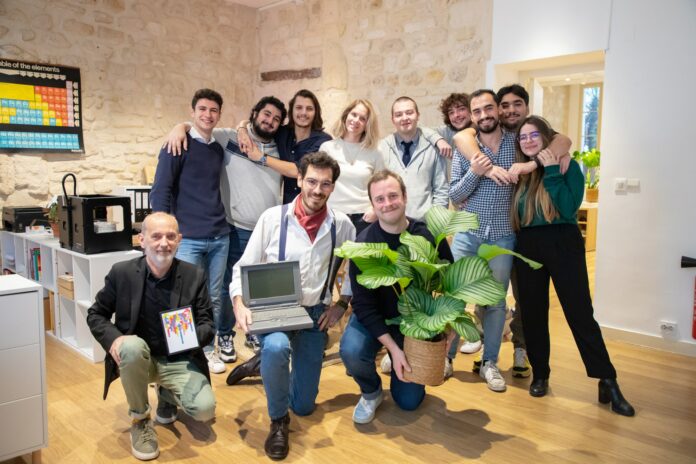Kosmik, a collaborative visual canvas for capturing, connecting and sharing information, has raised €3.3 million in seed funding led by Creandum with additional participation from existing investors Alven, Kima Ventures, Betaworks, Amjad Masad (the founder of Replit), Andrew Sutherland (the founder of Quizlet), and other prominent business angels.
Kosmik is redesigning the one piece of software that was never put in the cloud: the desktop. Despite aiming to be the digital counterpart to our physical desks, the desktop environment has remained largely unchanged since it was first created and hasn’t kept up with the way we gather, link, and share information today. Our desktops are still confined to our individual computers and organized into a strict hierarchy of files and folders – a set up that creates constraints for anyone dealing with information on a daily basis.
“With traditional desktops, a file can only live in one folder at a time, even if it might be related to others. If you pull it out, you break its ties. As a result, we lose the full context, can’t easily find what we need, and end up wondering: “why did I save this?” Kosmik was created out of the desire to arrange our knowledge in a way that’s personal, intuitive, and spacial,” said Paul Rony, Kosmik Founder.
With Kosmik, users can collect countless pieces of information, and construct and preserve the connections between them, on a freeform canvas that brings the many ways we discover and access information into one place. With an integrated browser, PDF reader, and text editor built in, users can simultaneously surf the web, read PDFs, import files, jot down annotations, and pull extracts from web pages and PDFs directly onto the canvas – all from within Kosmik. Then, these pieces of information are linked together to create a visual trail of what you have saved and why.
The result is a granular desktop that acts as a networked repository of materials and ideas – or, what Kosmik calls a ‘universe’ – that users can share with others as a public website to collaborate on in multiplayer mode. Kosmik’s database is designed to be offline-first, granting users access to all of their universes without needing an internet connection. The system is also privacy-centric, with all data encrypted on a user’s device, and peer-to-peer, meaning there’s no dependency on cloud services – a standout feature in an increasingly cloud-reliant era. The Kosmik is now releasing its first AI features, like auto-tagging, smart moodboards, and the ability to bump data out of websites.
Founded in 2018 by Paul Rony, Kosmik consists of a team of operators from notable European startups, including Beam, Deezer, Apple, and more. Since launching last year, Kosmik has amassed a dedicated user base that includes researchers, designers, writers, developers, and students who create Kosmik universes for everything from curating and sharing mood boards with clients, to managing projects and sprints by linking Figma designs, Notion briefs, and team notes.
With the wider vision to recapture the magic of personal computers, Kosmik will use this investment to scale its operations, build more integrations, grow its team and, overall, create better tools for us to think, curate, and collaborate without restraints.
“Paul and the Kosmik team have built an exceptional product for knowledge management that reimagines from the ground up many outdated paradigms in our daily workflows, from folders to links. Loved already by its users, we couldn’t be more excited to back Kosmik in the next phase of their journey,” added Hanel Baveja, Principal at Creandum and Kosmik Board Member.




